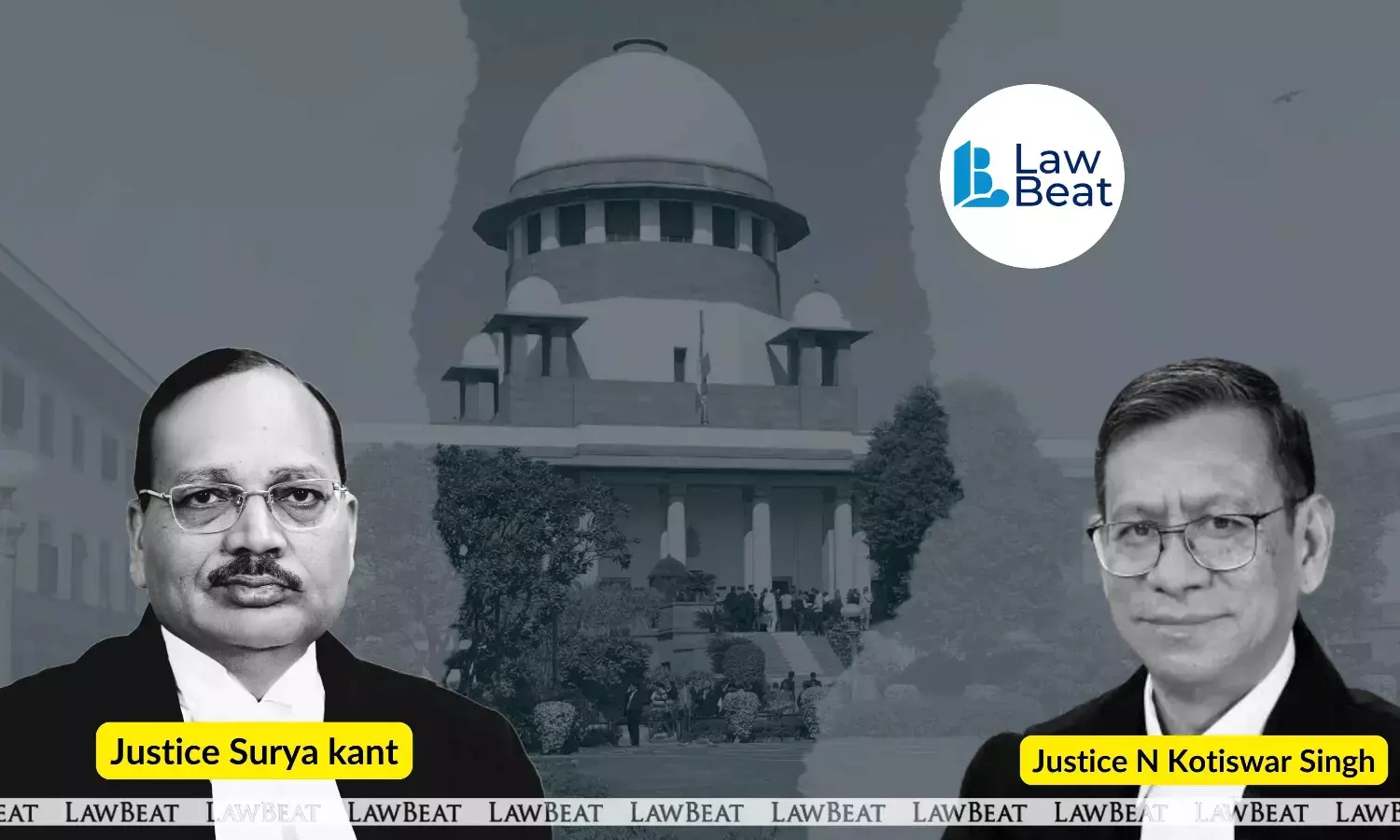"No Coercive Action": Supreme Court Directs Govt to Verify Citizenship Claims of Pakistani-Origin Family facing Deportation

The Supreme Court on Monday declined to pass interim relief in a writ petition filed by six members of a family, allegedly Indian nationals of Pakistani origin, facing imminent deportation to Pakistan following the recent terror attack in Pahalgam, Jammu and Kashmir.
The Court directed the concerned authorities to verify the citizenship claims and authenticity of documents submitted by the petitioners and to take an appropriate decision at the earliest.
The matter was heard by a Bench comprising Justice Surya Kant and Justice N.K. Singh.
The petitioners, represented by Advocate Dr. Nanda Kishore, invoked Article 32 of the Constitution, contending that they were being forcibly deported despite holding valid Indian passports, Aadhaar cards, and other proof of Indian citizenship.
The plea stated that the entire family had been detained and transported toward the Wagah border, and was on the “verge of being thrown out of the country” in alleged violation of their fundamental rights under Articles 14, 19, and 21.
The case arises against the backdrop of heightened Indo-Pak tensions after a deadly terror attack on April 22 in Baisaran Valley, Pahalgam, where 26 tourists were killed in an indiscriminate firing by terrorists. In response, the Union Government issued an order on April 25 directing all Pakistani nationals on short-term visas to leave India by April 27, failing which deportation proceedings would be initiated.
When the matter was called out, Solicitor General Tushar Mehta was unavailable, and a passover was granted.
Justice Kant clarified at the outset that no notice had been issued in the case and sought to ascertain the factual matrix, including how the family had entered India and on what basis they claimed Indian nationality.
In response to queries from the Bench, Advocate Kishore informed that Petitioner No. 2 (the father) had entered India in 1987 and had surrendered his Pakistani passport at the border.
He stressed that all six petitioners currently possess valid Indian passports issued by the Ministry of External Affairs. Two of the sons are employed in Bengaluru, while the rest of the family including one daughter and son, had been detained in Srinagar.
When asked why the petitioners had not approached the Jammu and Kashmir High Court like similarly placed individuals, Kishore submitted that the entire family had been arrested and detained, making it impossible to seek relief locally.
SG Mehta appearing for the Union of India, pointed out that the Government was acting in accordance with its April 25 order and added that there exists binding precedent in cases of visa overstay. He urged that the petition not be treated as setting a precedent.
After hearing both sides, the Court passed a detailed order noting that Petitioners Nos. 2 and 3 are the parents, and Petitioners Nos. 1, 4, 5, and 6 are their children, all currently residing in Srinagar. It recorded that the petitioners were allegedly detained for deportation in terms of the April 25 order, but were claiming Indian citizenship based on various official documents.
The Court observed that verification of the petitioners’ factual assertions; including the genuineness of documents, was necessary.
“Since the factual plea taken by the petitioners, require verfication by the authorities, including genuineness of documents...we dispose of the same at this stage without expressing any opinion on merits with a direction to the respondent authorities to verify all these documents or any other relevant facts that may be brought to the notice of the authorities. Let an appropriate decision be taken at the earliest, though we are not fixing any timeline,” the Bench ordered.
Accordingly, it directed the respondent authorities to undertake such verification and take an appropriate decision at the earliest, while refraining from fixing a specific timeline.
The Court also recorded that “in the peculiar facts and circumstances” of the case, no coercive action shall be taken against the petitioners until such decision is made. However, it cautioned that this order shall not be treated as a precedent.
The Court further granted liberty to the petitioners to approach the Jammu and Kashmir High Court if aggrieved by the final decision of the authorities.
“However, if the petitioners are dissatisfied with the final decision, that would be taken by the authorities, liberty is granted to them to approach the High Court of the Union Territory of Jammu and Kashmir. The Court clarified that this order has been passed in peculiar facts and circumstances of this case, and may not be treated as a precedent,” it said.
Case Title: Ahmed Tarek Butt v. Union of India [Diary No. 23301/2025]
